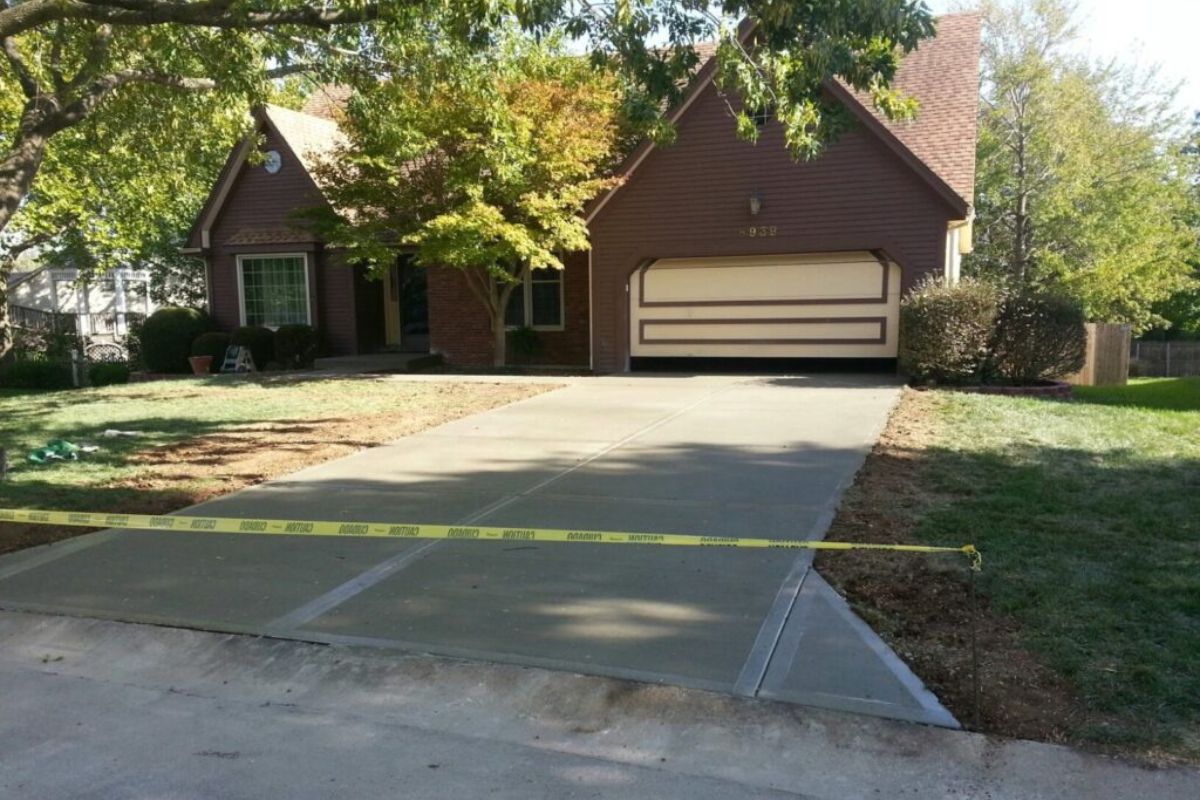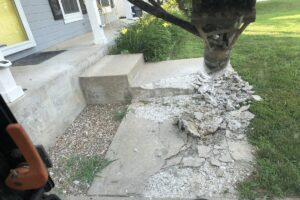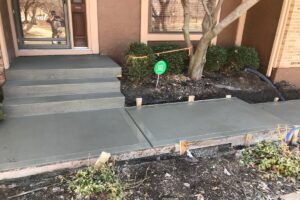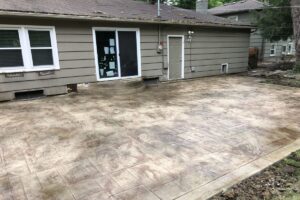One of the main motivators to replace your driveway could be your curb appeal suffering because of damage or wear. If your driveway is beginning to crack or crumble, you might benefit from repair or replacement.
Although driveways can last for periods spanning decades, you might want to think about your driveway replacement options if you are noticing a few common problems.
Time to Finally Replace Your Driveway: Is Your Driveway Getting Old?
If your driveway has reached the point where it’s considered old, replacement might be in your future. On average, most concrete driveways last about 30 years.
Vehicle traffic, harsh winter weather, and UV rays all contribute to driveway wear. Potholes and cracks are also more common in old driveways. Although there are ways to repair the cracks and potholes, replacing the driveway is usually more cost-effective in the long run.
You May Need to Replace Your Driveway If It’s Never Been Resealed
If you’ve never resealed your driveway or have no idea whether a previous owner resealed it, you may need to replace your driveway. As durable as concrete is, the damage might be too severe for any option other than replacement if it’s never been maintained properly.
Concrete driveways require resealing every two to three years to prevent cracking and breaking. If your driveway is asphalt and shows signs of serious wear, replacement with concrete will give you a longer-lasting driveway.
Time to Finally Replace Your Driveway: Drainage Issues May Signal a Need for a New Driveway
If your driveway is sloped or uneven, drainage issues are likely that might weaken your driveway over time. Signs that your driveway has sunken areas include water pooling in certain locations or running down the middle of the driveway.
When your driveway weakens from pooling water, you are more likely to see potholes and cracks forming. Although there are measures like inlets or curbing that help with drainage, replacement is usually the best, permanent solution.
Potholes Are a Sign You Need a New Driveway
If you needed a sign that your driveway has issues that need to be addressed, a large pothole could be that sign. Big potholes are no small matter because they can cause problems that include:
- Damage to tires’ belts and sidewalls
- Puncturing your tires
- Impacting your alignment
The main cause of potholes is when the ground expands and contracts underneath your driveway. Potholes form when pieces of concrete crack and crumble away. Although it’s possible to fill small potholes, the best long-term solution is to replace the driveway; otherwise, the potholes will eventually return.
Time to Finally Replace Your Driveway: Multiple Deep Cracks Are a Sign You Need a New Driveway
Although cracks aren’t unusual on driveways, too many cracks that are deep can be a problem. Some of the factors that can contribute to the size and depth of cracks include:
- Water, from rain or ice and snow runoff
- De-icing salt used in winter
- Gasoline spills
In the Kansas City area, freezing temperatures in the winter lead to a freezing and expansion cycle, which can make the cracks deepen. Replacing the driveway with a new one is the best way to stop this cycle of damage.
When your driveway is cracked or damaged, you’ll want to work with someone who makes high-quality concrete driveways. Experienced contractors who work with driveways know how to make sure your driveway looks and functions as you expect.
Johnson Concrete has the expertise that you need when it’s time to repair or replace your driveway. If you need to replace your driveway or want to find out which options are available to you, contact us today for more information.




